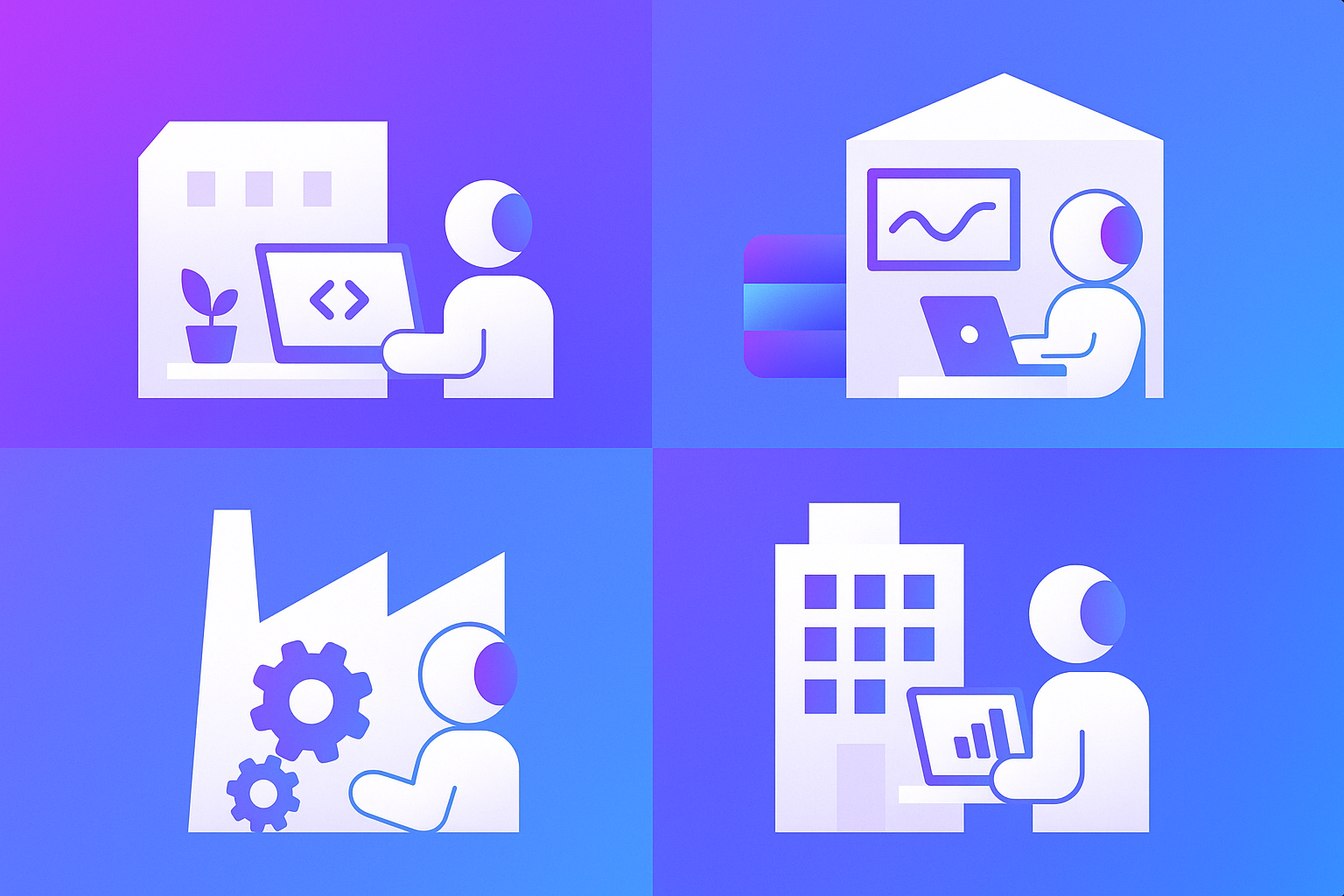Top Companies for Deploying AI Agents

Sorry, there were no results found for “”
Sorry, there were no results found for “”
Sorry, there were no results found for “”
Enterprise teams are drowning in tool sprawl and context switching. Agentic AI systems that combine large language models with APIs, memory, and task-planning capabilities offer a unified solution.
These autonomous agents can perceive situations, reason through complex workflows, and take action on behalf of users.
With 2025 being called “the year of AI agents” by industry leaders, major technology companies are racing to deploy sophisticated agentic platforms that promise to streamline operations and boost productivity across organizations.
Agentic AI refers to systems that autonomously perceive data, reason through specialized models, execute tasks via external tools, and continuously learn from feedback to improve performance.
This four-step cycle of perceive-reason-act-learn enables agents to handle sophisticated business processes without constant human oversight.
Understanding agentic AI requires looking beyond simple chatbots to systems that can independently execute complex, multi-step workflows.
Unlike traditional AI assistants that respond to individual prompts, agentic systems maintain context across extended interactions and can adapt their approach based on real-time feedback.
The autonomous nature of these systems creates both opportunities and challenges.
NVIDIA’s research on agentic AI demonstrates how agents can orchestrate multiple specialized models while maintaining guardrails for safety.
However, Beam AI’s 2025 review reveals that 90% of AI agents fail within 30 days due to context loss and integration issues.
Leading platforms address these challenges through stateful memory systems, robust tool orchestration, and comprehensive governance frameworks that track decision-making processes and enable human oversight when needed.
Organizations deploying AI agents report workload reductions of 50-78% and significant improvements in process efficiency, making them essential for staying competitive in an increasingly automated business landscape.
Market research shows that 81% of business leaders plan to integrate agents into their AI strategy, though only 24% have achieved organization-wide deployment according to Microsoft’s Work Trend Index.
The primary drivers include reducing tool fragmentation, automating routine workflows, and scaling customer interactions without proportional headcount increases.
Mid-sized companies between 100-2,000 employees are leading adoption, using agents for research and summarization (58%), personal productivity (53.5%), and customer service (45.8%).
However, deployment challenges remain significant. Integration with legacy systems, context retention across multi-step processes, and establishing proper governance frameworks represent the biggest hurdles.
Successful implementations emphasize continuous evaluation, human-in-the-loop controls, and restricted permissions to prevent agents from exceeding their intended scope.
The agentic AI landscape features established cloud providers, innovative startups, and enterprise software companies, each bringing unique strengths to agent deployment and management.
These platforms share common innovations around governance, evaluation, and integration capabilities.
Most emphasize security through role-based access controls, provide comprehensive observability for tracking agent decisions, and offer extensive connector libraries to integrate with existing business systems.
The trend toward specialized domain agents rather than general-purpose assistants reflects the maturation of the market and growing understanding of how to deploy agents effectively in enterprise environments.
Agentic AI systems combine language models with external tools, memory, and planning capabilities to autonomously complete multi-step tasks without constant human guidance.
Organizations use agents to reduce tool switching, automate repetitive workflows, scale customer interactions, and achieve significant efficiency improvements in knowledge work.
The biggest issues include context loss between steps, integration difficulties with legacy systems, and error cascading that requires robust governance frameworks.
Leading platforms implement role-based access controls, decision tracking, anomaly detection, and human-approval workflows for sensitive actions or transactions.
Customer service, software development, data analysis, and business process automation see the highest adoption rates and measurable efficiency gains.
The companies leading agentic AI deployment combine robust technical infrastructure with practical governance frameworks that address real enterprise challenges.
From AWS’s secure runtime environments to ServiceNow’s multimodal interfaces and Microsoft’s comprehensive agent ecosystem, these platforms demonstrate how autonomous AI can transform business operations while maintaining necessary oversight and control.
© 2026 ClickUp